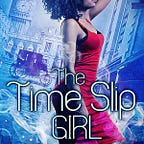10 things I learned rewriting a 20-year old manuscript
Note: This blog post was originally published on Women and Words in 2016.
More than 20 years ago, I wrote a 65,000 word novel that I was convinced would make me the sweet young darling of literary circles. It didn’t happen. That manuscript was rejected by every English language publisher in the world. The manuscript was then lost to time until I reconnected with an old friend on Facebook. He revealed that he had the manuscript and was willing to give me a copy. I decided to rewrite it, and Tested: Sex, love, and friendship in the shadow of HIV is the result.
I learned a several valuable lessons in the rewriting process:
1: If a detail doesn’t move the plot or develop a character, leave it out, no matter how beautiful and poignant it is.
My 65,000 word manuscript was filled with this most common of rookie writing mistakes. Tested is a story of four 20-something friends in 1993 who spend the day getting an HIV test while contemplating the various risks they have taken that may affect the result. As well written as various sections were, nobody cares about my endless descriptions of high school homophobic bullying, the Chicago public transit system, Ethiopian restaurants, or newspaper vendors. I had to kill my darlings, as much as it pained me, but I turned my 65,000 word flabby manuscript into a 23,000 word lean piece of fiction that says what it needs to and does it well.
2: Make the title accurate.
My original title for this novel was Last Train to Belmont. That’s a reference to a very well used train station in Chicago where the novel is set. It doesn’t even remotely reflect what the story is really about. Tested is much more accurate and gets to the point.
3: Think carefully about how you update.
The story is set in 1993. I kept that setting, but I had to make decisions about what to do with the stigmatizing language that, while standard in 1993, is inappropriate in 2016. I did keep a significant percentage of it because it was appropriate to the time and the characters, but some of it I cut because the point had been made. I did not need to repeat stigmatizing language unnecessarily.
4: I was a good writer even though no one wanted to publish my book.
Even though my writing was flabby, I had a fabulous way with words, and I’ve still got it.
5: My work still mattered even though it wasn’t published.
I’m from a family of writers and grew up with the idea that you write something and then you publish it. If you don’t publish it, what’s the point? My old friend kept that manuscript all these years because a character was based on him. That manuscript meant something to him, and that is enough.
6: It’s a good thing it wasn’t published.
Really, it’s a much better book now. If it had been published in 1993, I would probably be apologizing for it today.
7: There is someone out there who believes in you.
Back to my friend who saved my manuscript all these years. He always believed that I would become a famous writer. He still believes it. Note that he was willing to give me a copy of the manuscript. He’s still holding onto the original. He believed in me when I didn’t believe in myself. I will always be grateful for that.
8: You owe it to the people who believe in you to let the world see your writing.
I could have just taken the copy of the manuscript and done nothing with it. I knew I couldn’t. I had a story to tell about friendship and the stress of living through the AIDS crisis. That was the story I had to tell in 1993, and I still needed to tell it.
9: I wrote about events, but now I understand them.
Life must be lived forward but can only be understood backwards. Tested is loosely based on myself and a group of three close friends I had in 1993. When I wrote the manuscript so close to those relationships, I could only write about action and events. In 2016, I could write about why things happened. I understand a lot more, like the fact that I had a crush on my straight girl friend. And I had no idea until I rewrote the old manuscript. Now, I get it.
10: I was kind of bossy in my early 20s.
The character loosely based on me is kind of bossy. I suspect that may reflect reality. Sorry about that.
Elizabeth Andre writes lesbian romance, science fiction, and paranormal adventure. She is a lesbian in an interracial same-sex marriage living in the Midwest. She hopes you enjoy her stories. She certainly loves writing them. If you would like to support her work, become a member of her Patreon or subscribe to her email newsletter.
